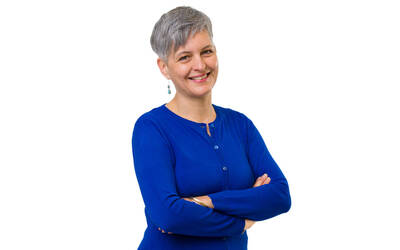AirBiD – Airborne biological diversity shaped and modelled by Urban Green Elements
(Biodiversa+) Il progetto AirBiD, finanziato attraverso il partenariato europeo per la biodiversità Biodiversa+, si propone di investigare la composizione e la dinamica delle comunità aeromicrobiche e aeropalinologiche in ecosistemi urbani di diverse città europee. L'obiettivo primario è di caratterizzare la biodiversità dell'aria, analizzando la presenza e la distribuzione di bioaerosol (batteri, funghi, virus) e pollini, e di valutare il loro impatto sulla salute umana e sull'ambiente.
Start Date
01/02/2025End Date
30/01/2028Funded by
EUROPEAN BIODIVERSITY PARTNERSHIP | 2023-2024 Joint CallTotal cost
- total funding
- approx. 1,4 mil Euro
- budget FEM
- 199.832,50 Euro
Coordinated by
DEPARTMENT OF BIOLOGICAL AND ENVIRONMENTAL SCIENCES, POLLEN LABORATORY, UNIVERSITY OF GOTHENBURG - SWEEDEN
Nestor Gonzàles Roldàn nestor.gonzalez.roldan@bioenv.gu.se
Participants
Project description
(Biodiversa+) Il progetto AirBiD, finanziato attraverso il partenariato europeo per la biodiversità Biodiversa+, si propone di investigare la composizione e la dinamica delle comunità aeromicrobiche e aeropalinologiche in ecosistemi urbani di diverse città europee. L'obiettivo primario è di caratterizzare la biodiversità dell'aria, analizzando la presenza e la distribuzione di bioaerosol (batteri, funghi, virus) e pollini, e di valutare il loro impatto sulla salute umana e sull'ambiente.
Extended description
CONTEXT: The air we breathe is filled with biological particles like bacteria, fungi, and pollen, which together make up the "aerobiome." These aerobiome can influence our health and well-being in many ways. Urban green elements, such as parks, gardens, and green rooftops, play a key role in shaping this invisible world. However, we still don’t fully understand how these green areas influence the air biodiversity. A high biodiversity of airborne organisms is expected to have a positive effect on health and well-being, mitigating the negative impacts of increasing urbanization.
MAIN OBJECTIVES: The AirBiD project aims to uncover the hidden connections between urban green spaces, airborne biodiversity, and human health. By doing so, we aspire to improve urban planning and make cities healthier and more sustainable.
Understanding Airborne Biodiversity: We will study how urban green spaces influence the aerobiome, focusing on five cities across Europe. Create Useful Tools: Our team will develop maps applicable by city planners and communities to show the connection between green spaces, the aerobiome, and air quality. Promoting Health and Well-Being: By investigating how air quality, shaped by biodiversity, affects health and well-being, we aim to emphasize the advantages of greener, more biodiverse urban environments. Engaging Communities: Through fun and interactive citizen science activities, we will involve residents in our research and raise awareness about the importance of biodiversity. Sharing Solutions: Finally, we will offer practical guidance on creating and maintaining green spaces that enhance air quality, boost biodiversity, and promote healthier urban living.
MAIN ACTIVITIES:
- FIELDWORK IN FIVE CITIES: AirBiD will collect air samples from urban green spaces and nearby areas in Evora (ES), Trento (IT), Vienna (AU), Copenhagen (DK), and Gothenburg (SW).
- CUTTING-EDGE SCIENCE: AirBiD will use advanced DNA techniques to identify the microorganisms and biological particles in the air, combining these findings with results from conventional methods like microscopic analysis.
- CITIZEN SCIENCE: AirBiD will involve local communities in collecting data and learning about biodiversity through workshops and events.
- MAPPING AND MODELLING: AirBiD will create platform-independent tools based on open data formats that show how green spaces affect air quality and biodiversity, facilitating informed decision-making by policymakers, stakeholders and communities.
- SHARING RESULTS: AirBiD will disseminate knowledge through public talks, published articles, and infographics, offering guidelines for urban green spaces to support informed policymaking and highlight the impact of urban green spaces on the quality of the air we breathe.
FEM Project contact person
FEM staff involved
Official project website
Funding Scheme
Loghi



